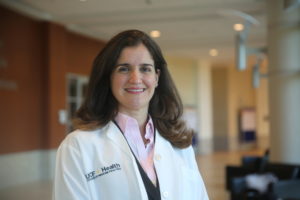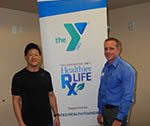
Today, we know the key to a healthy society is preventing diseases in the first place rather than aggressively treating terminal or advance diseases. It is certainly a more humane and sensible approach to healthcare. Unfortunately, for many different reasons, many of us put off going to the doctor until something is wrong. There are some screenings that can ward off or detect health problems early, which could save your life. By catching diseases early on, they’re easier to treat, and you have the best chance of survival.
Sounds like a logical concept, but many people are not taking advantage. According to the American Cancer Society, about half of all new cancer cases could have been found or prevented through preventative health screenings recommended by physicians. Even though you might feel great, it is very important to visit your doctor regularly to stay on top of these screenings. These tests have been assessed through studies and proven to be beneficial for the patient. Some of these screenings do not provide a final diagnosis but rather signal that more specific testing is needed. Others detect pre-cancerous conditions and call for closer observation and screening in a particular patient.
View the charts below to see what you are due for. This list is not all-inclusive or intended to substitute for an evaluation and recommendation from your medical provider. Recommendations are based on the U. S. Preventive Services Task Force’s screening guidelines. Please note that some other organizations might produce a different set of guidelines. The most important first step is to have a discussion with your primary care physician about the screenings you need.
Recommended Preventive Screening for Women:
- Colon cancer screening (50-75 years old; there is also benefit to screening some patients out of these general age ranges, based on their individual risk).
- Cervical cancer screening (21-65 years old).
- Breast cancer screening (starting at 40-50 years old depending on risk factors and patient preference).
- Lung cancer screening (55-80 years old with a history of smoking, who currently smoke or have quit within the past 15 years).
- Dexa scan (starting at 65 years old or in younger patients with risk factors).
- Hep C screening (if you were born between 1945-1965 or for those at high risk for infection).
- HIV screening (15-65 years old or in patients at high risk for infection).
Recommended Preventive Screening for Men:
- Colon cancer screening (50-75 years old; there is also benefit to screening some patients out of these general age ranges, based on their individual risk).
- Prostate cancer screening – discuss with your doctor since recommendations for screening in the general population have significantly changed in recent years.
- Lung cancer screening (55-80 years old with a history of smoking, who currently smoke or have quit within the past 15 years).
- Hep C screening (if you were born between 1945-1965 or for those at high risk for infection).
- HIV screening (15-65 years old or in patients at high risk for infection).
- Abdominal aortic aneurysm screening (65-75 years old if you have a history of smoking).
The next time you find yourself asking if a physical exam is really necessary, remember that if you want to live a healthier lifestyle, monitoring your health is essential. Even young, healthy patients should come in for a physical at least every few years and follow through on their physician’s recommendations. Health maintenance visits are a great opportunity to discuss other important health issues such as weight, cardiovascular disease prevention and CDC-recommended immunizations.
The old saying, “An ounce of prevention is worth a pound of cure,” is even truer today in an age of less invasive screenings and more effective treatments. Some screenings might need to be done regularly, while others might be needed just one time. You and your doctor will determine your needs based off of known risk factors as well as family history for certain diseases.
UCF Health is the College of Medicine’s physician practice, offering primary and specialty care to the community. Its newest office is located in Lake Nona at the corner of Narcoossee Road and Tavistock Lakes Boulevard. Most major insurance plans are accepted. Visit UCFHealth.com for more information, or call (407) 266-DOCS to schedule an appointment.





Does Dr. Castro take Florida Blue Medicare Advantage yet?
We are not sure. Please feel free to visit their website at: https://ucfhealth.com/.
Thank you,
Lindsay